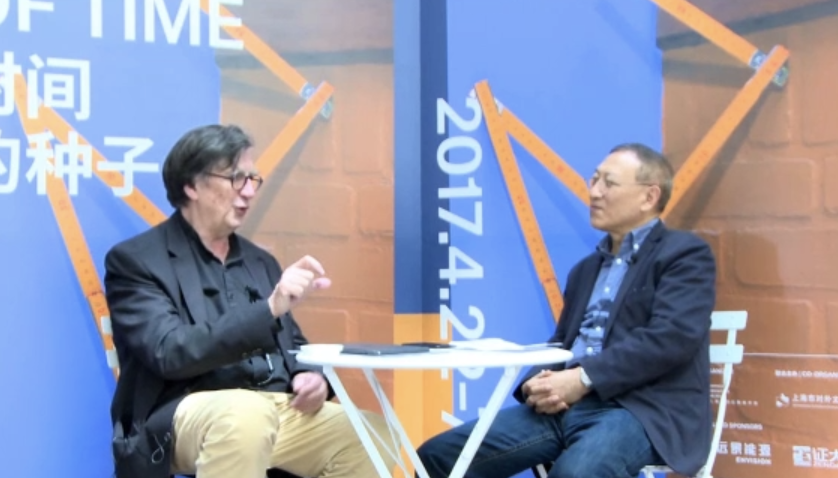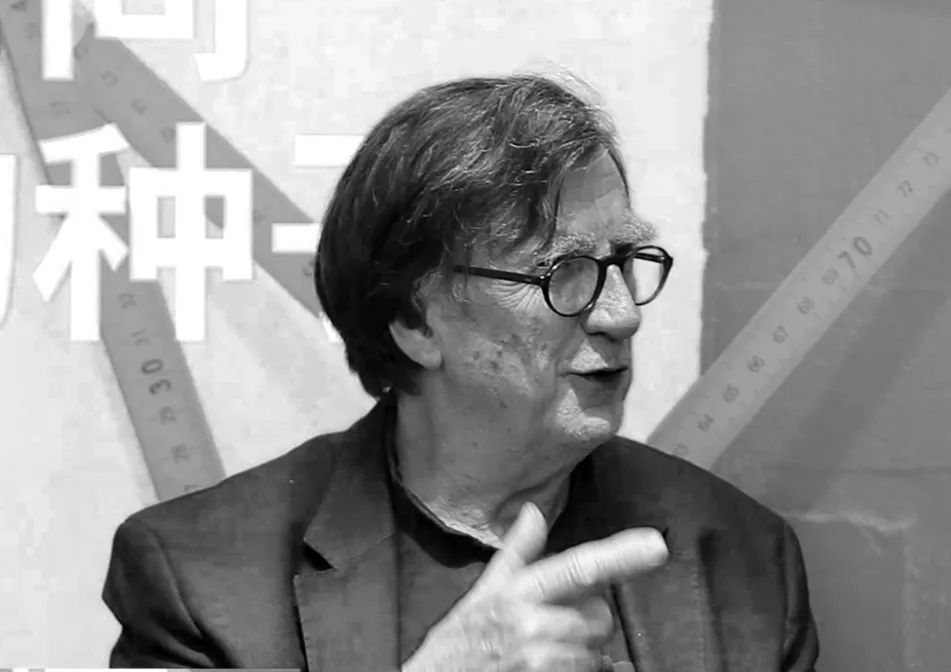
Event

Bruno Latour, the visionary and academic iconoclast (1947-2022)
One of the most insightful philosophers of our time, Bruno Latour, passed away on October 9th. Le Monde reported on the day that “Bruno Latour, thinker of the new climate regime, died. He is one of the most important French intellectuals of his generation.” In 2018, New York Times described him “the most famous and misunderstood of French philosophers.
Arguably Latour was a very rare and challenging spirit willing to cross the interdisciplinary boundaries between philosophy, anthropology, science, history, sociology, ecology & climate change movement, and even exhibition making. The admiration and doubts surrounding him are not irrelevant to his relentless spirit of challenge and experimentation.

In March of this year, I invited Bruno to a forum titled “Art and Architecture in the Age of Ecological Crisis” held in Venice around opening of Venice Biennale. Bruno informed me later through his friend that it would be difficult for him to participate due to health issues, and he apologized. I was told that he stopped all external activities due to the onset of pancreatic cancer. He probably wanted to manage the last part of his life quietly and alone.
In 2017, when I invited Bruno to participate in Shanghai Project as a root researcher, which I co-curated with Hans Ulrich Obrist, he stayed in Shanghai for a week, organizing forums, workshops and exhibitions with Chinese anthropologists, philosophers and architects. He also gave a special lecture on climate mutation at the invitation of Tongji University. At that time, professors related to architecture and humanities at Tongji University were working with the Shanghai project and Latour workshop, in particular.
In a special conversation with me prepared by the Shanghai Project, he explained why the philosopher curate exhibitions, saying, “Why shouldn't philosopher make exhibitions? You can meet a large audience with a clear motive, the exhibition has an appeal to convey visual signs through concentrated keywords, and the audience can be transformed. There are many ways to meet readers and exhibition is a powerful tool.”
An audience asked Latour a nasty question. You seem to be much more famous internationally than in France. Is it true that the prophet is not well-received in his hometown? Why do they call you an academic iconoclast? Bruno stood in a clear position. “All healthy blood vessels flow well without blockage. Academic research is like a blood vessel with various branches. Wouldn't it be better to see things and the truth better if we look at it from a wide perspective in various fields rather than insisting on only one study as a motive? Both science and art need a rational dogma, and that is what sets them different. Politics is also supported when it is a beautiful dogmatic line.” He emphasizes the need for rational dogma and the dogma in academics just like artistic creation. He thinks that philosophy without rational arbitrariness is a grey, and it is evaluated as a relativist theory.
At the peak of the pandemic in 2021, Bruno Latour articulated his position as an activist rather than a visionary or theorist on climate change by delivering a prophetic message to global readers in his book After Lockdown: A Metamorphosis. He takes a very radical stance. About the belief that we can finally go back to the fun life of the past when the lockdown between villages, cities, and countries are lifted by taking off our masks, he says, we cannot and should not try to get out of lockdown. Lockdown teaches crucial lessons about how to live, or more precisely, how to dwell and coexist with other species on the earth.”
He also argues “Today's global health crisis is a rare opportunity to learn to live in the closed state created by the new climate regime. It's kind of like a dress rehearsal of climate mutation, so to speak, and it's finally an opportunity to fully understand what our 'Earth' is and what we're going to be like in the future. Finally, it is our chance to explore the land inhabited by all other living beings. Humans should emulate termites – even though they live in mounds made from masticated earth and faecal matter. Because they do not lay waste to the Earth. We must productively recycle our waste and consume little.” His new ecological regime seems clearly unveiled the fact that social justice and ecological crisis recognized as aligned.
Bruno’s guides line on ecological practice has a clear definition called “Critical Zone”. “Three kilometers above the ground and three kilometers underground, including the sea, is a critical zone for all chosen beings. This realm is not a space where resources are endlessly exploited and wasted, but rather to protect each other and cultivate ecologically, it is the only space for human existence to coexist in the future. Like terroir(earth) in a vineyard”.
Based on Latour’s critical zone, he and his 4 collaborators curated an exhibition titled Critical Zone at ZKM (Zentrum fur Kunst und Medien Karlsruhe) in Karlsruhe, Germany. This multidimensional showcase, subtitled Horizons of New Earth Policy, is a groundbreaking exhibition that proposes alternative ideas after pandemic. ZKM held this exhibition for 19 months from May 2020 to January 2022.
“People need something to disagree with, something strong enough intellectually, not just a slogan. Exhibition making is another way of researching my rational dogma. Through three times of exhibitions, I made a definitive point about all these questions about iconoclasm. Because it was so massively informative with a very clear, but only one idea, very simple idea, to compare all the iconoclastic gestures and value situations.” Bruno has written a short memo on curating and the importance of the critical zone show.
Most of the collaborating partners who have been working on research projects with Bruno have been philosophers, anthropologists, publishers, architects, urban planners, curators, designers, environmentalists, and his absolute allies, the media.
His surname Latour is reminiscent of the Latour family, a luxury wine producer in the Bordeaux region, but he was actually born as the son of a wine producer, Latour, in the Bourgogne (Burgundy) region. From an early age, he was always troubled by his father's sanction to work in the vineyard, but as a vineyard worker, he did not fit in. What later made him a philosopher was probably the motivation from the vineyard.
I thought that the burgundy wine he served me in his Paris apartment tasted exactly like Bruno. Somewhat strong, solid, and consistent. The advantage of those who believe in reincarnation is that they are not pessimistic about parting. I'll see you somewhere.
再见, Bruno!
 ABOUT US
ABOUT US




